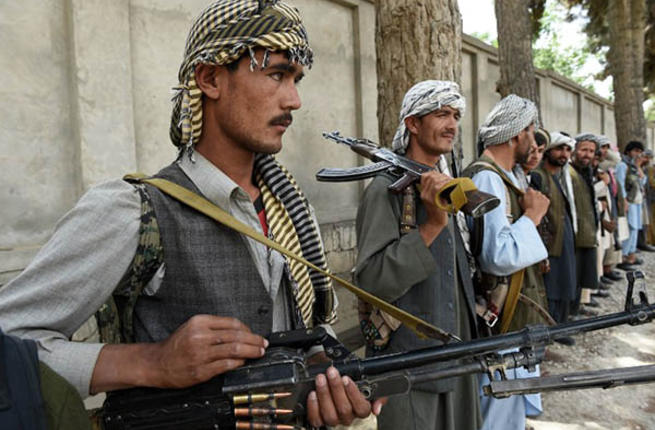
The Taliban on Friday announced their annual spring offensive, which comes as the Afghan and US politicians try to negotiate for a peace settlement with the militant group, like reported by tolonews.com.
Operation Fath — which means “victory” in Arabic — will be conducted across Afghanistan with the aim of “eradicating occupation” and “cleansing our Muslim homeland from invasion and corruption”, Taliban said in a statement.
The annual spring offensive traditionally marks the start of the so-called fighting season, though the announcement is largely symbolic as in recent winters the Taliban has continued fighting Afghan and US forces.
“Our Jihadi obligation has not yet ended,” the Taliban said.
The Ministry of Defense spokesman Qais Mangal said the Taliban’s spring offensive is “mere propaganda”.
This comes after the Afghan government on announced on April 2 that President Ashraf Ghani has approved the security plan for the current solar year as conflicts are intensifying between security forces and Taliban in different parts of the country.
The National Security Council said in a statement that the plan, named Khalid Security Plan, is aimed at boosting security across the country particularly the security of urban areas and highways.
As well as, the plan is aimed at suppressing the enemy, recognizing vulnerable areas in terms of threats by militants, ensuring the safety of upcoming presidential elections, preventing civilian casualties and better deploying of forces.
Government figures show that almost 45,000 members of Afghan National Defense and Security Forces lost their lives in the past four years under the National Unity Government.
Meanwhile, clashes have intensified in northern, northeastern and southern parts of the country as the weather is changing.
In a recent incident on Monday night, at least eight members of the Afghan police were killed in an attack by the Taliban in northern Balkh province.
The announcement of the security plan comes amid the increasing efforts for peace by the Afghan government and its international allies including the United States.
In a report released in February, the United Nations said the organization has documented 3,804 civilian deaths, including 927 children, in 2018.
In total, UNAMA documented 10,993 civilian casualties (3,804 deaths and 7,189) wounded), representing a five percent increase in overall civilian casualties and an 11 percent increase in civilian deaths compared with 2017.
In this report, UNAMA attributes the majority of civilian casualties – 63 percent – to anti-government elements (37 percent to Taliban, 20 percent to Daesh, and 6 percent to undetermined anti-government elements).
According to the report, pro-government forces caused 24 percent civilian deaths (14 percent by Afghan national security forces, six percent by international military forces, and four percent by other pro-government armed groups and forces).
The report says that key factors contributing to the significant increase in civilian casualties were a spike in suicide attacks by anti-government elements, mainly Daesh, as well as increased harm to civilians from aerial and search operations by pro-government forces.
The report says that 2018 witnessed the highest number of civilian casualties ever recorded from suicide attacks and aerial operations.
President Ghani at a security meeting on March 13 ordered strict rules to security forces to protect civilians in their operations.


